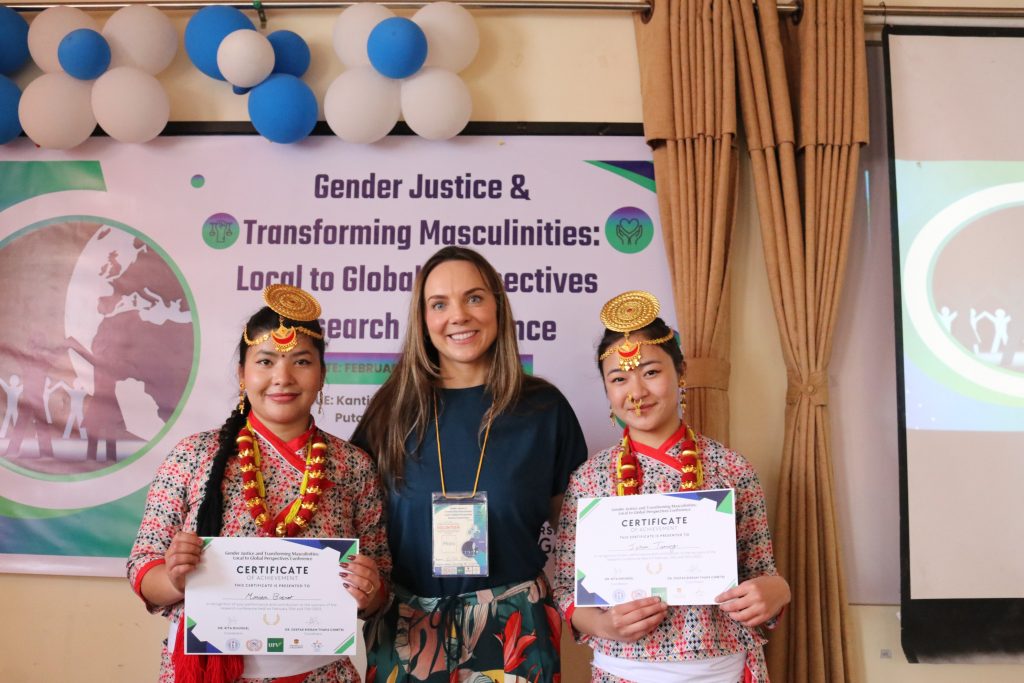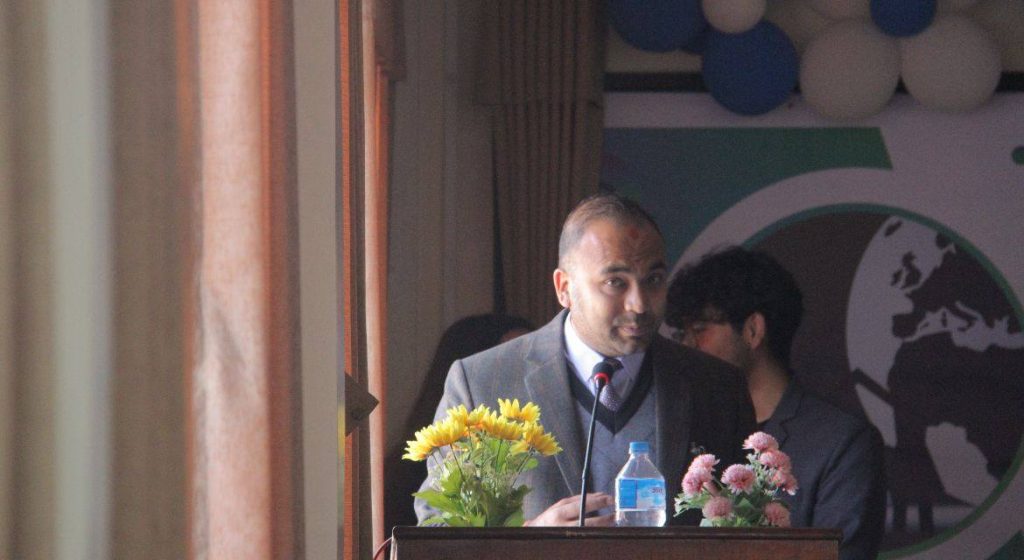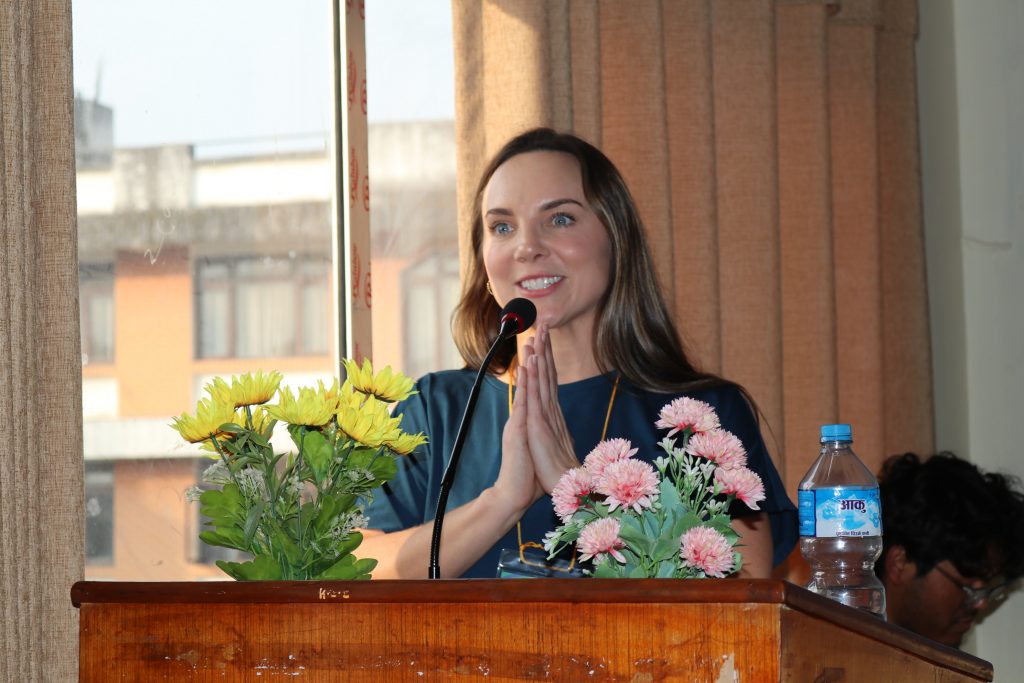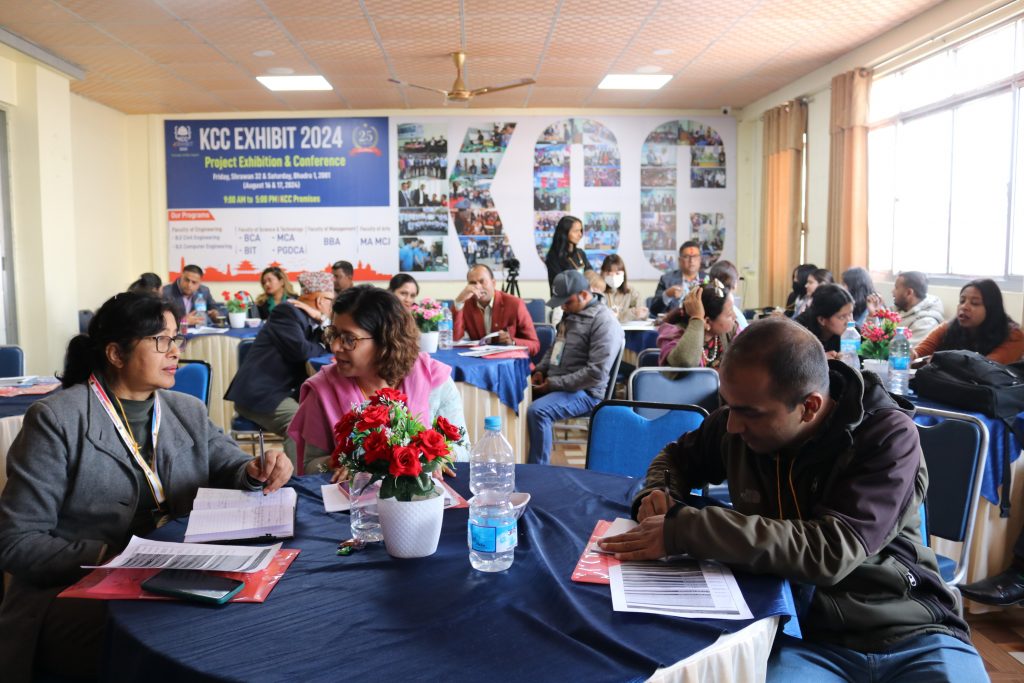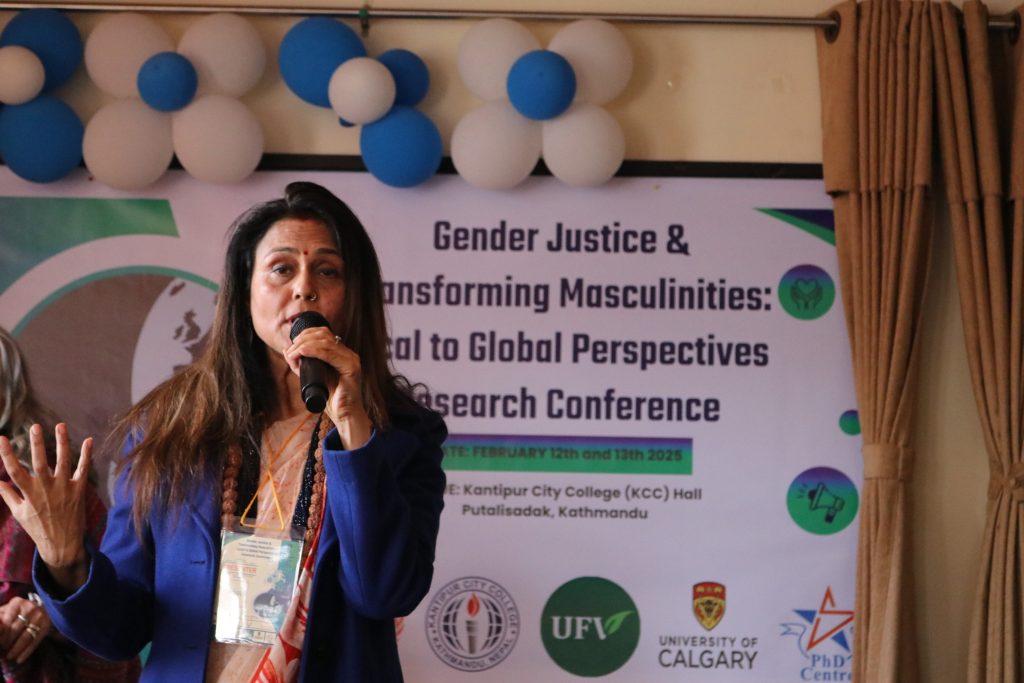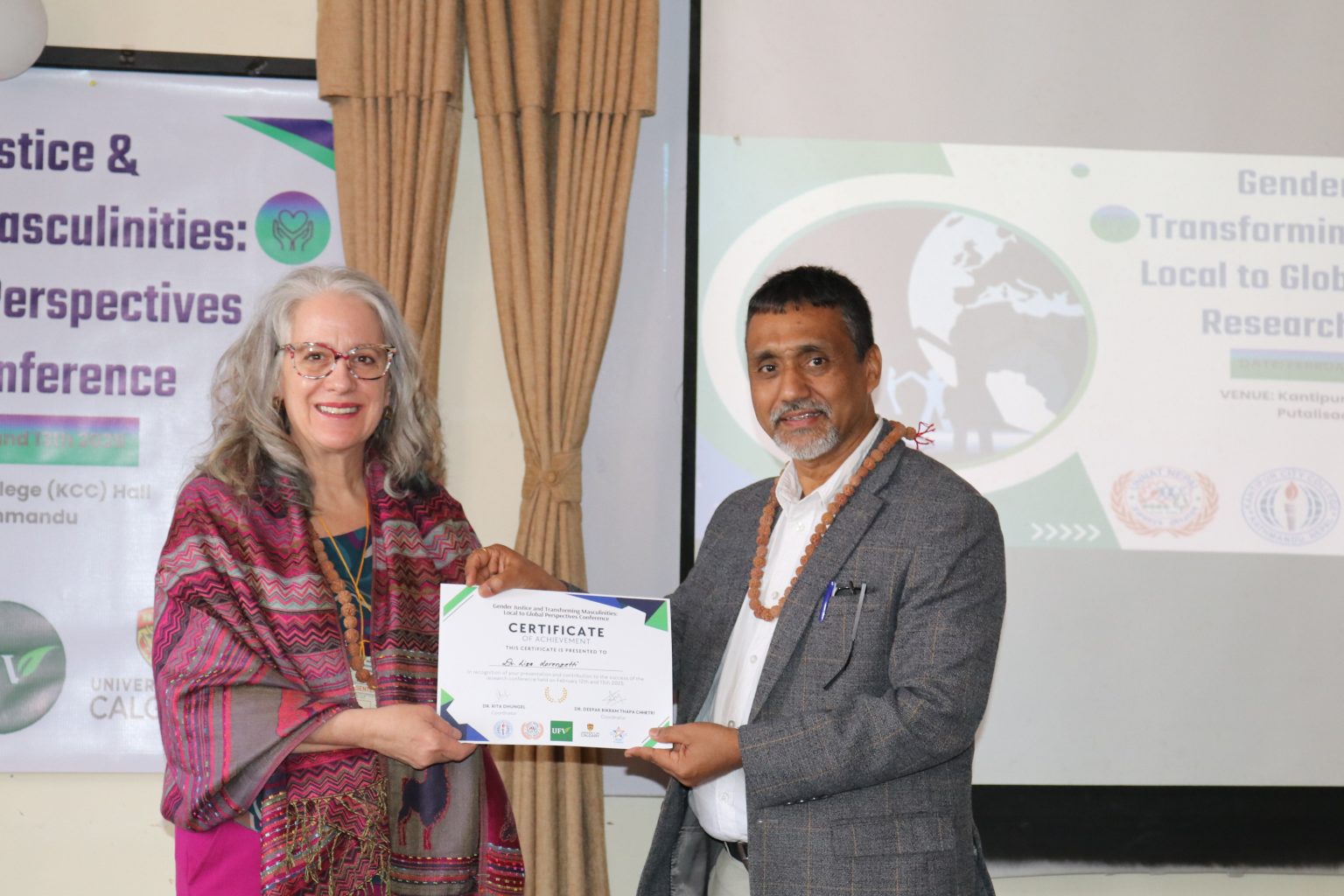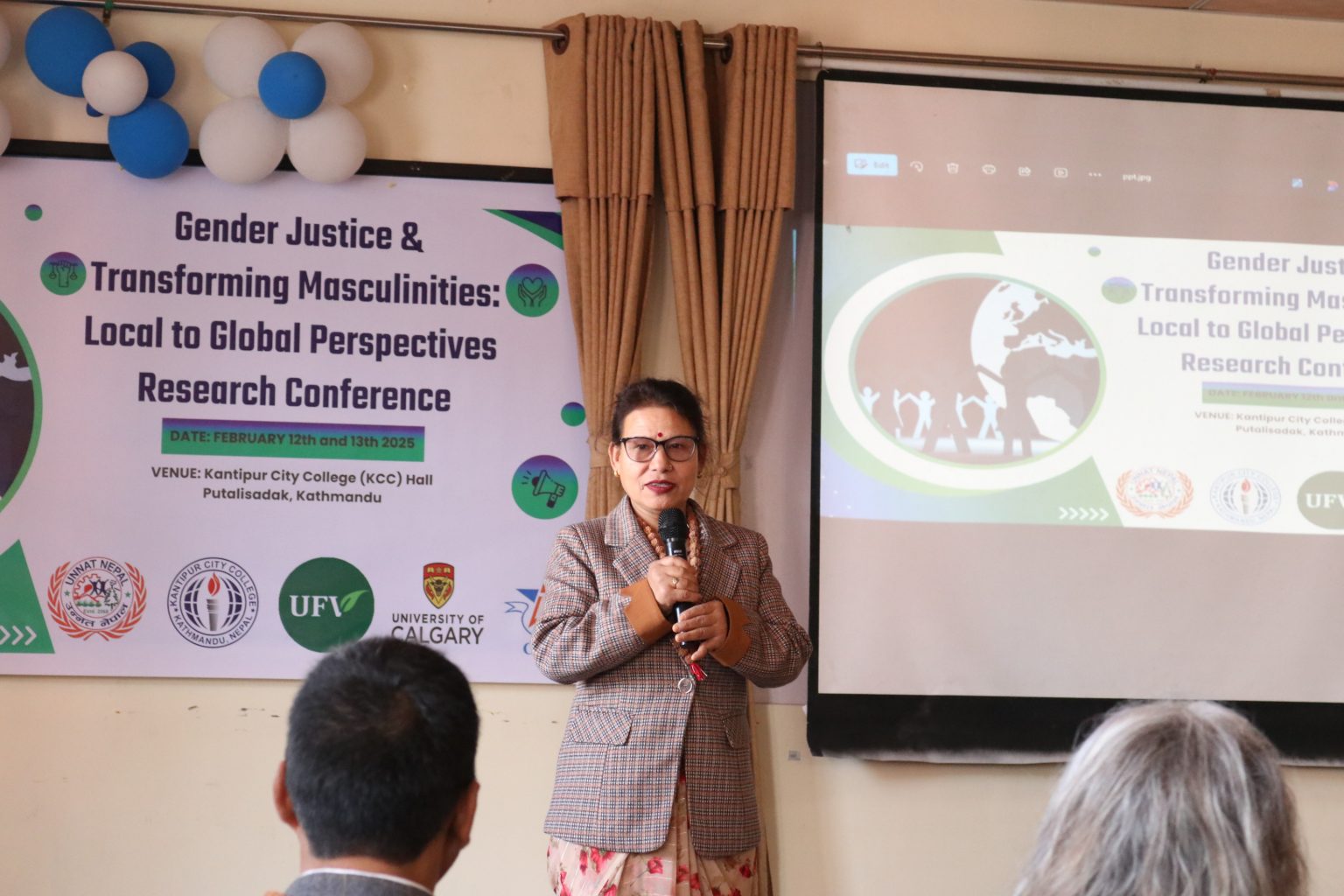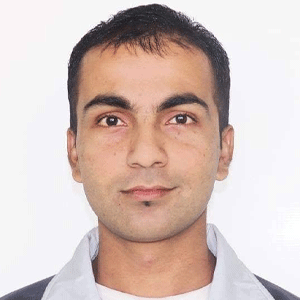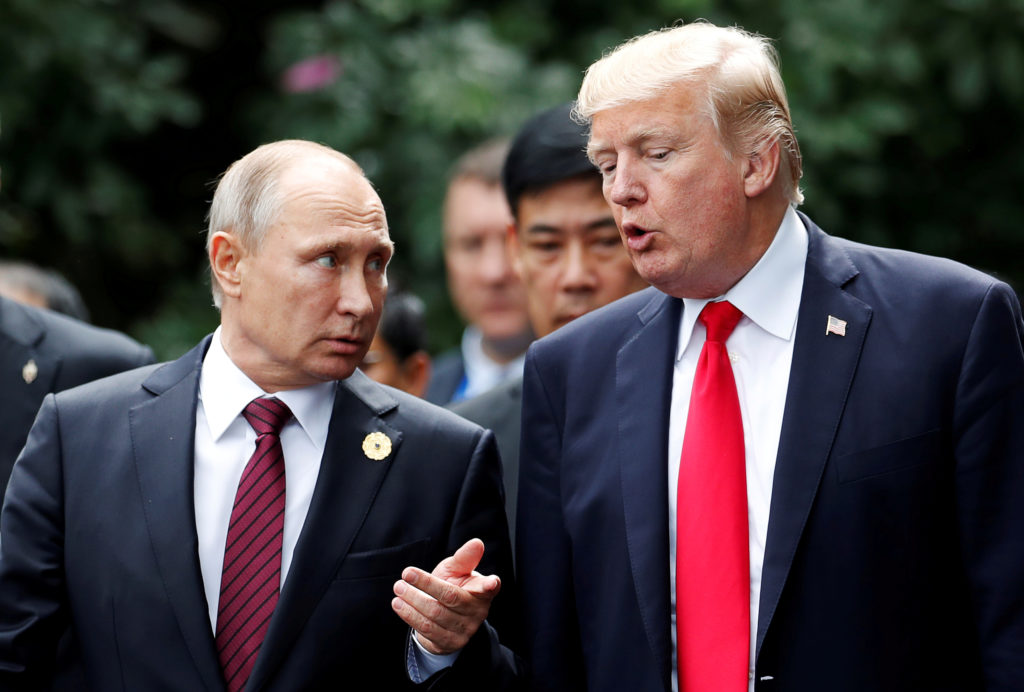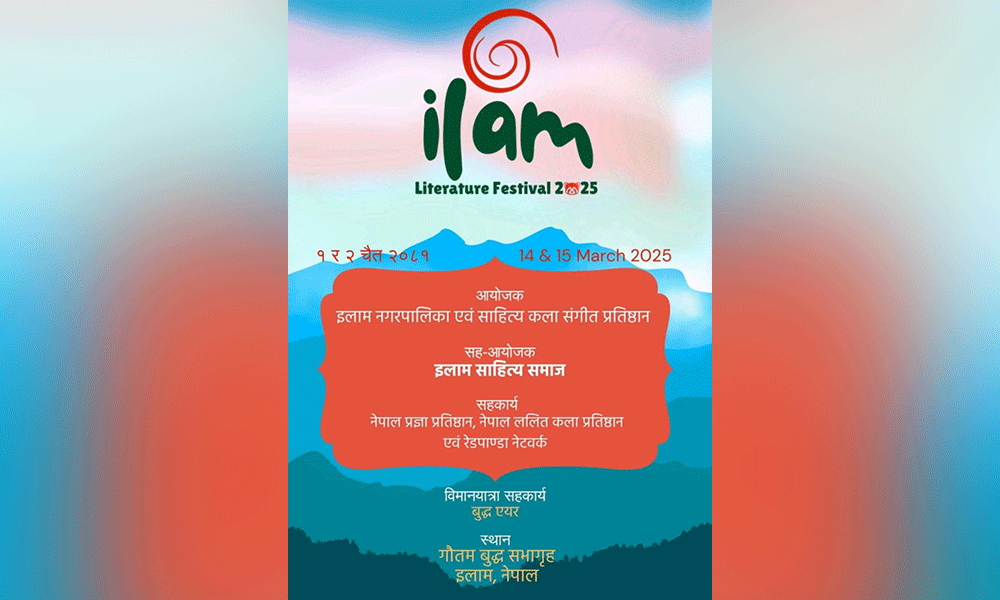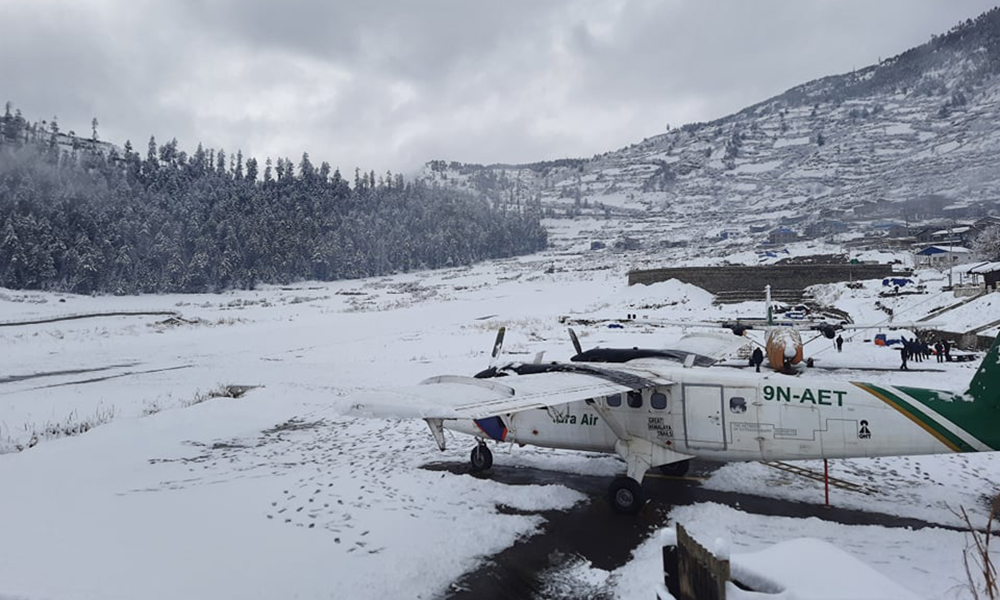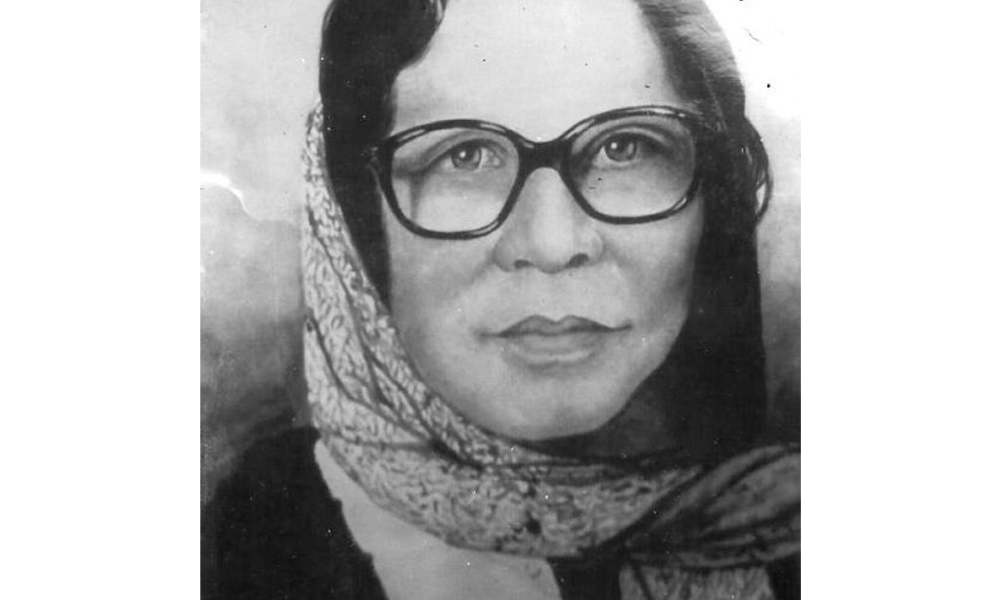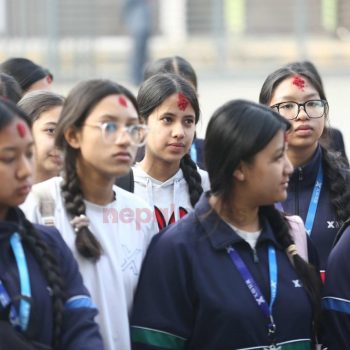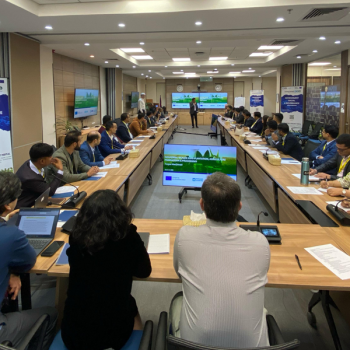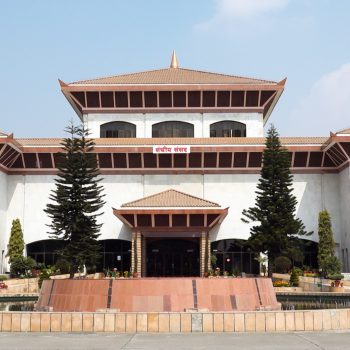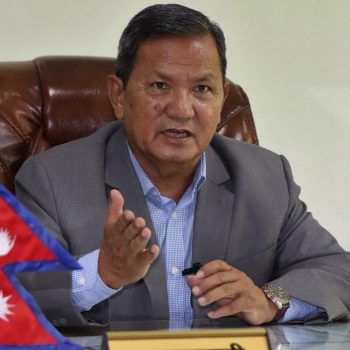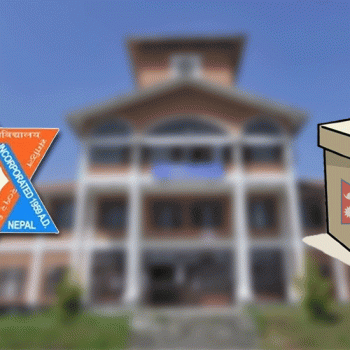International Research Conference on Advocating Gender Justice and Transforming Masculinities: A meaningful initiation
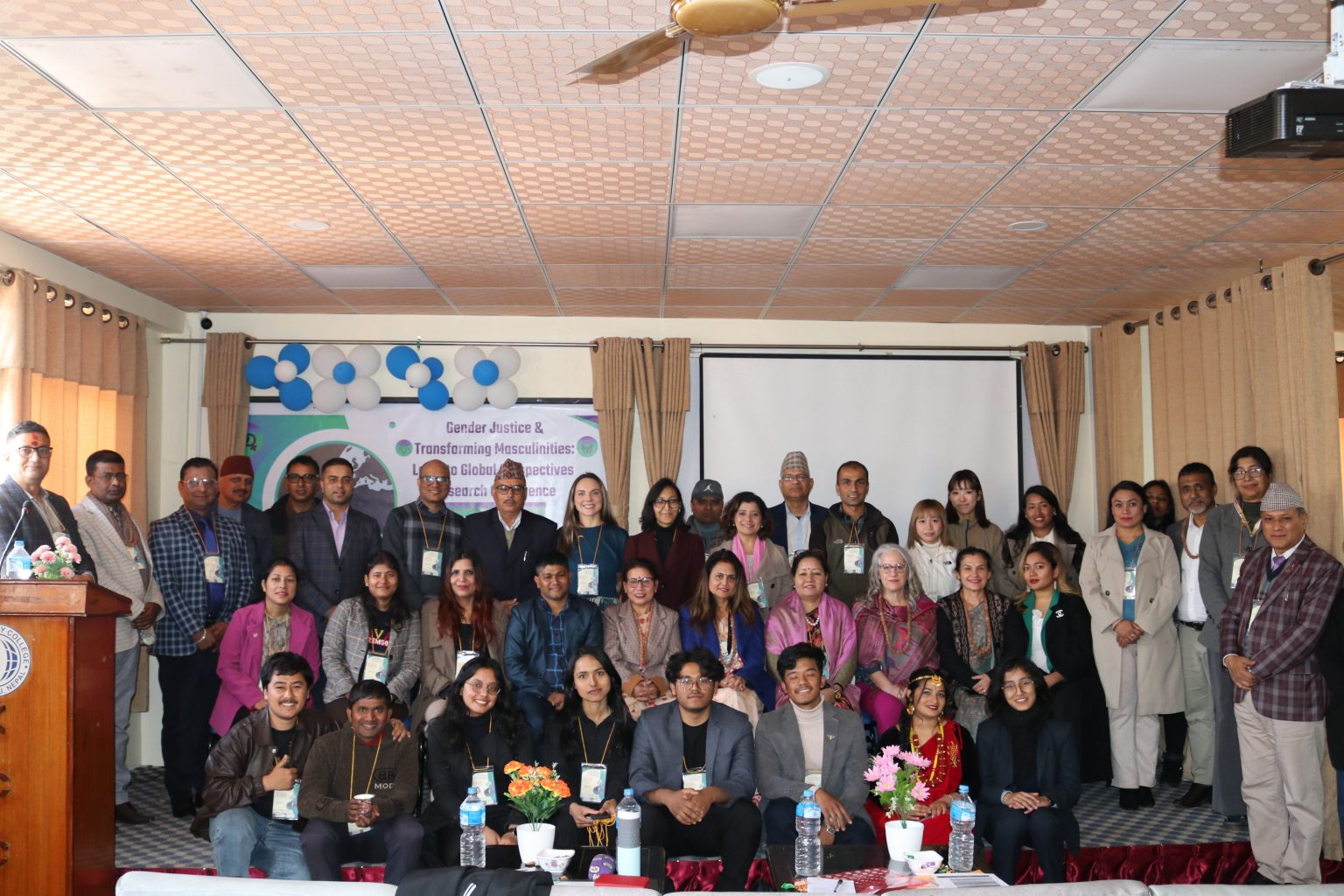
KATHMANDU : The two-day international research conference on “Gender Justice and Transforming Masculinities: Local to Global Perspectives” concluded on Thursday in Kathmandu. The event, held at Kantipur City College in Bagbazaar, started on Wednesday and was organized in collaboration with various national and international organizations. The institutions, including Unnat Nepal, the University of Fraser Valley and Calgary of Canada, along with PhD centers, successfully hosted the conference. According to the organizers, this was the first international conference on gender justice and transforming masculinities.
During the event, activists, researchers, and community leaders from Canada and Nepal came together to explore strategies for addressing gender-based violence (GBV) and advancing gender justice.
The conference was inaugurated with a symbolic plant-watering ceremony by Program Chair Dr. Pralhad Karki (Director, Kantipur City College), keynote speakers, and guests, setting the tone for a collaborative and growth-focused dialogue.
The conference featured two keynote speeches: one by Charimaya Tamang, the founder and president of Shakti Samuha, and the other by Dr. Lisa Lorenzetti, Associate Professor at the University of Calgary. In total, 13 research papers were presented by experts working in their respective fields, along with some cultural reflections.
Chief guest Tamang, a global leader fighting against human trafficking, shared her deeply heart-touching lived experiences of unique struggles when facing trafficking, exploitation, and survival. She spoke about the profound challenges, hardships, and torture she endured during and after being rescued from the brothels in her presentation, titled “From Survivor to Advocate.” She highlighted her survival through near-death experiences and the violence she faced. She also mentioned how she fought against those responsible for the trafficking, leading to their sentencing of 10 years. Tamang explained her struggle and how those experiences shaped and motivated her to stand up on behalf of survivors and combat human trafficking.
She also described the changing trends of violence, exploitation, and trafficking over time. “During our age, we were forced, lied to, and taken to brothels, but the present time has changed. The internet and the digital world have become even harsher in regard to such inhumane crimes,” she said. She expressed concerns about the worse consequences of today’s information technology generation, where online and social media trafficking are escalating.
Tamang also shared another bitter experience regarding the state’s refusal to recognize the total of 128 rescued individuals from India in 1996, including her. It was yet another form of fight to establish her recognition and reintegrate into Nepali society. Despite her rescue, her village couldn’t accept her. According to her, the treatment of marginalized individuals by the government is deeply problematic.
Nevertheless, she struggled hard to stand up for herself and other girls like her, establishing the organization Shakti Samuha and supporting trafficking survivors. Shakti Samuha currently protects 131 trafficking survivors under its supervision. She committed to making remarkable contributions to advocating for the conservation of survivors and the prevention of trafficking.
Furthermore, she pointed out the vast differences in how the media treated victims in the past and present. In the past, the media exploited victims by capturing photographs, but the situation has changed. “Today media personnel are supporting the activists for positive change,” she said. Finally, she stressed that gender justice and equality should be addressed with a multi-dimensional approach.
Similarly, Dr. Liza Lorenzetti, another keynote speaker at the event, discussed how the global perspective on gender justice and transforming masculinities has changed over time. She shared that 30 years ago, when working for women’s empowerment, women were working separately from men, even blaming them. “However, no remarkable progress was made, and now the approach has been expanded to include men, and it has proven fruitful, as I have experienced in my community and family,” she said.
She emphasized the need to change cultural perceptions and societal structures, which indeed define gender roles. Dr. Lorenzetti advocated for the adoption of a healthy gender justice system in society, which, according to her, is only possible through the active participation of men in transforming masculinity and enhancing inclusive practices.
Another speaker, Dr. Rita Dhungel, Associate Professor at Fraser Valley University, Canada, provided insights from her research paper on Examining the Terrain of Men’s Engagement in Violence Prevention and Gender Equity Work in Nepal. This research, conducted collaboratively with Dr. Bidur Dhungel, indicated the challenges women faced during floods in Nepal and revealed how disaster recovery efforts lacked a gender-sensitive perspective.
Dr. Rita shared that gender justice and transforming masculinities is an international project being implemented across seven countries, including Nepal.
Another insightful and emotional story was shared by presenter Shanti Lama, who explained the challenges faced by trafficking survivors in building leadership skills. Her personal stories and the lessons she learned offered inspiration to all women facing similar hardships.
The second day of the conference included a focused group discussion, where various notable participants, including Yuba Nath Lamsal, former ambassador and editor-in-chief of The Rising Nepal, Manju Khatiwada, human rights advocate, activist Meena Kunwar, and Sanjog Thakur, founder of HamiDajuvai, shared their experiences and insights on the given topics. The discussion focused on different human rights issues, perspectives, and personal experiences, which helped shape their careers and bring about societal change.
Lamsal highlighted his 35 years of service as both a journalist and diplomat, focusing on human and child rights. Kunwar expressed her heartfelt stories and hardships and how these experiences shaped and inspired her to stand up for women like her. Khatiwada shared her motivations for her work as a human rights advocate. Thakur pointed out that while movements to promote gender justice focused on women, the violence faced by men has been neglected. He also mentioned alarming data on child marriage, stating that both boys and girls are equally affected.
Dr. Nagendra Thagunna, a practicing psychologist, presented a paper on the mental health status of HIV survivor women based in the far-western regions. He highlighted the sad findings of his research, with 91 percent of the women suffering from mild to severe mental health issues.
Another presenter, Miss Universe Nepal’s 2023 first runner-up, Abhilasha Lamsal, mentioned her efforts in providing training to girls in self-defense and mental health.
Lisa Bond, a social studies student at the University of Calgary, summarized the conference and expressed her thanks to the participants, offering certificates to the attendees, presenters, and others.
Dr. Deepak Thapa, Director of the Engineering Department at Kantipur City College, who coordinated the entire event, pointed out that despite his quantitative research work, the conference introduced new approaches that one should be aware of, going beyond numbers to understand real human experiences. “Human beings cannot always be quantified, nor expressed in statistics,” he said.
Dr. Prahlad Karki, Director of Kantipur City College, who chaired the conference, announced plans to implement the learnings from the event by establishing a unique student club dedicated to gender justice at the college. He extended his gratitude to the participants and committed to organizing similar events in the future.
The conference concluded with over 50 participants from various fields. The participants reflected on their experiences after the conference, reporting that it was a meaningful initiation in the journey of gender justice and transforming masculinities.
